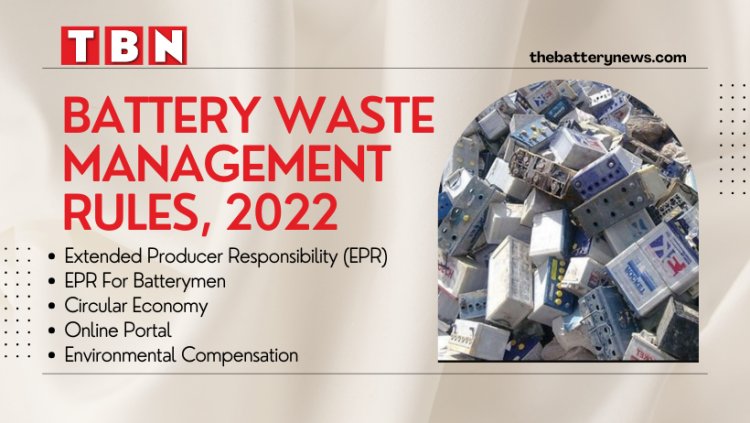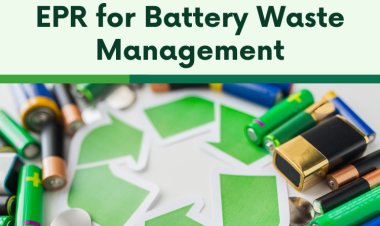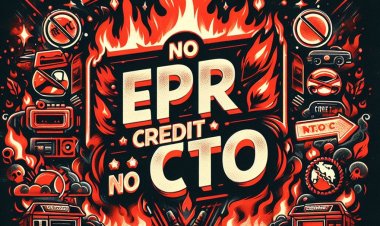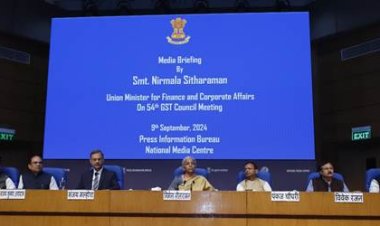New EPR rules are taking shapes under PMO directive to make Battery Scrap recycling more efficient and accountable.
As per the provision under Rule 4 (1), Producer has the obligation of Extended Producer Responsibility (EPR) for the Battery that they introduce in the market to ensure the attainment of the recycling or refurbishing obligations. Extended Producer Responsibility (EPR) is a policy that holds manufacturers and importers of electronic products responsible for the entire lifecycle of their products. This includes managing the waste generated from those products.

The Battery Waste Management Rules and EPR are a significant step towards the realization of the announcement made by Prime Minister Shri Narendra Modi to implement the Circular Economy in full force. Unlike the traditional linear economy, which operates on a “take-make-dispose” model. The Battery Waste Management Rules, 2022 were published on 22nd August, 2022 by the Ministry of Environment, Forest & Climate Change and replaced the Batteries (Management and Handling) Rules, 2001.
The circular economy encourages us to rethink our approach towards production, consumption, and waste management to keep resources in use for as long as possible and extract maximum value from them. This makes the circular economy a viable alternative to traditional linear economic models and a feasible solution to our environmental challenges, as it focuses on sustainability, resource conservation, and activities like reusing, recycling, repairing, sharing, and leasing. The circular economy is important for sustainable development as its adoption will lead to minimizing environmental harms, promoting economic opportunities and individual empowerment, reducing waste from the traditional linear economy, boosting business satisfaction through corporate social responsibility, and shifting towards renewable energy.
What is the Circular Economy:
The circular economy is a model of production and consumption, which involves sharing, leasing, reusing, repairing, refurbishing and recycling existing materials and products as long as possible.
Reusing and recycling products would slow down the use of natural resources & reduce landscape and habitat disruption and help to limit biodiversity loss.;
How the circular economy can help the environment by:
- Reducing carbon emissions
- Reducing toxic waste
- Regenerating nature
- Protecting the environment
- Improving material recovery
Key Highlights of Battery Waste Management Rules, 2022:
EPR for lead scrap recycling involves:
- Collecting and sending all waste batteries for recycling or refurbishment
- Prohibiting disposal in landfills and incineration
- Recycling waste materials to make new batteries
What is Extended Producer Responsibility (EPR):
These rules are based on the concept of Extended Producer Responsibility (EPR), which is an approach designed to hold manufacturers accountable for the environmental impact of their products once they are no longer useful to consumers. Under EPR for batteries, the battery manufacturers and importers are responsible for collecting, and recycling or refurbishing the waste batteries and for using the materials recovered from waste batteries to make new batteries. The EPR prohibits disposal of waste batteries in landfills and incineration.
Applicability:
These rules apply to the producer, dealer, consumer, and entities involved in the collection, segregation, transportation, refurbishment, and recycling of waste batteries and to all types of batteries, regardless of their chemistry, shape, volume, weight, material composition, and use.
Online EPR Portal:
As per these rules, the Central Pollution Control Board (CPCB) has developed a centralized web portal (eprbatterycpcb.in) for the registration of entities, the generation of EPR targets and credits, the exchange of EPR credits between producers and recyclers, and the filing of returns.
Registration on EPR Portal:
Under these rules, it is mandatory for all battery producers, importers, refurbishes, and recyclers to apply and register on the online portal developed by CPCB. The battery producers and importers shall apply as “Producer” and their application processing and registration will be done by CPCB, whereas the battery recyclers and refurbishes shall apply as “Recycler” and their application processing and registration will be done by the State Pollution Control Board (SPCB).
Post Registration Process:
After getting registration, the Producer shall generate the EPR targets for the financial year and meet those targets on the EPR portal. These EPR targets will be generated based on the sales data provided by the Producer. To fulfil the EPR targets, producers must purchase/obtain the EPR credits from the recyclers. The producer will have to file an annual return regarding the waste batteries collected and recycled or refurbished to fulfil the EPR obligations. Whereas the Recycler after getting the registration certificate shall generate the EPR credits for the financial year, these credits will be generated based on the material recovered and sold by the Recycler. Recyclers have to sell/transfer the EPR credits to the producers and file returns quarterly regarding waste batteries collected, recycled, and material recovered.
Violations and Penalties:
On the basis of the Polluter Pays Principle, environmental compensation will be imposed on entities carrying out activities without having a valid registration under these rules, entities providing false information or forged documents at the time of registration under these rules, entities engaged in collection, segregation, and treatment with respect to not following sound handling of waste batteries, and entities for not fulfilling their EPR targets, responsibilities, and obligations set out under these rules.
The complete Battery Waste Management Rules, 2022 can be accessed on the EPR portal i.e. eprbatterycpcb.in
A Note from author:
Here are the Summary of thr steps for registering on the EPR portal:
- Complete the application form
- Attach all necessary documents with your application
- CPCB will review the application
- If CPCB requires more information, please provide it
- Upon successful document verification, CPCB will issue your certificate
For more information on EPR battery registration process contact RSM Experts.
Email: rsmexperts@gmail.com, Ph.no.: +91 99999 75549.

























